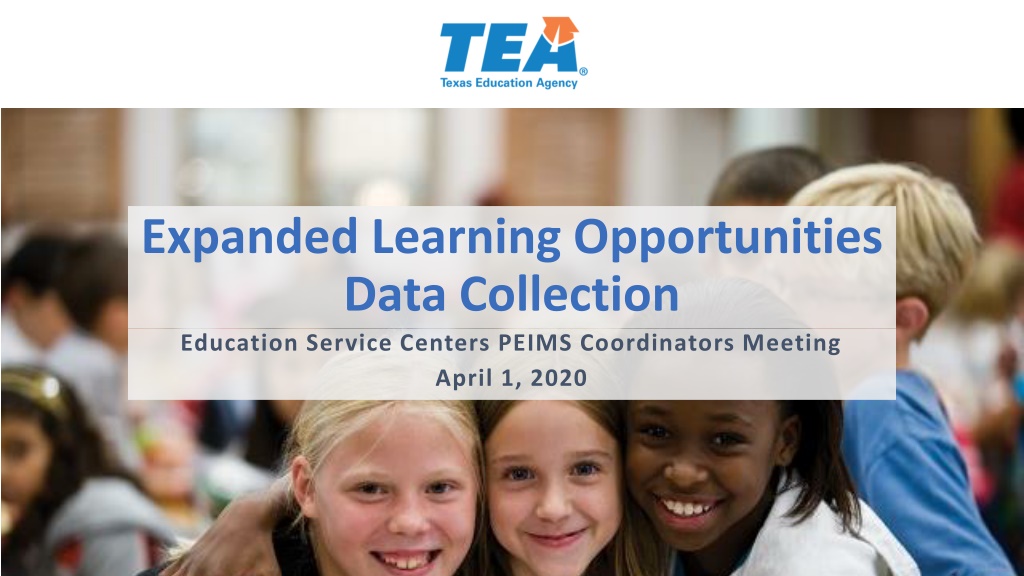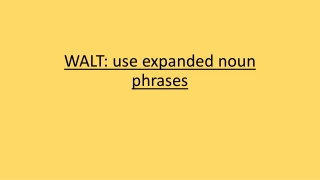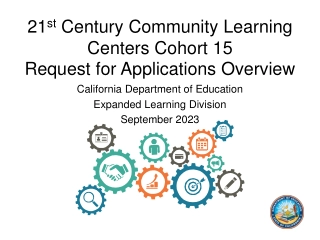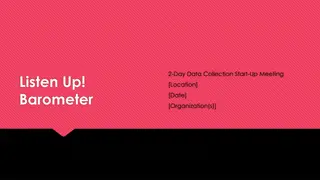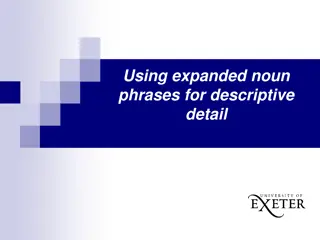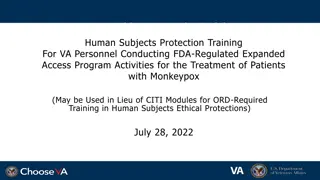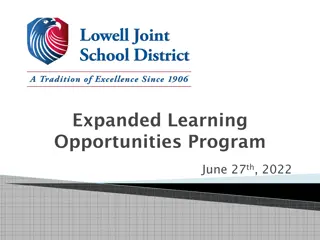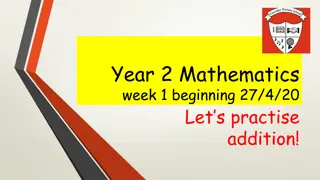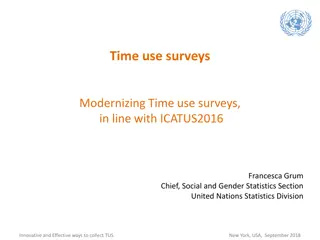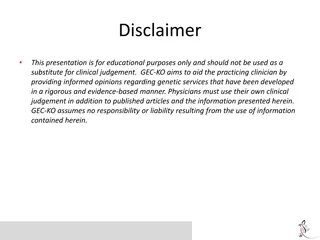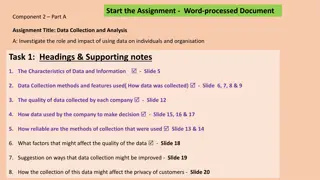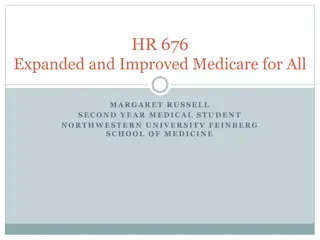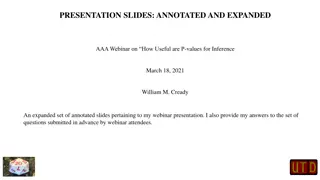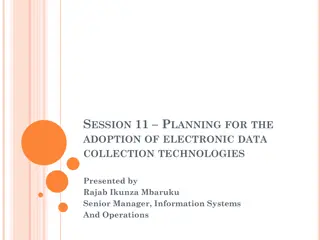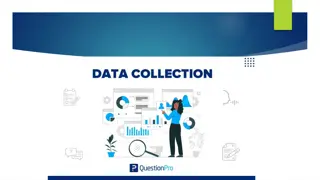Understanding Expanded Learning Opportunities Data Collection in Education
Exploring the importance of data collection in assessing the need for high-quality Expanded Learning Opportunities (ELO) in Texas, as mandated by legislative requirements. ELO encompasses a variety of structured programs beyond regular school hours, providing academic enrichment, mentorship, and more. The collection of data through PEIMS ensures transparency and helps in evaluating areas for improvement.
Download Presentation

Please find below an Image/Link to download the presentation.
The content on the website is provided AS IS for your information and personal use only. It may not be sold, licensed, or shared on other websites without obtaining consent from the author. Download presentation by click this link. If you encounter any issues during the download, it is possible that the publisher has removed the file from their server.
E N D
Presentation Transcript
Expanded Learning Opportunities Data Collection Education Service Centers PEIMS Coordinators Meeting April 1, 2020
Why Data Collection? ELO collection in PEIMS will provide the data required to assess the unmet need for high quality ELO in Texas The 85th Texas Legislature (2017) passed legislation requiring the collection. (a-2) The commissioner by rule shall require each school district and open-enrollment charter school to report through (PEIMS) information for each campus of the district or school regarding: (1) the availability of expanded learning opportunities as described by Section 33.252; and (2) the number of students participating in each of the categories of expanded learning opportunities listed under Section 33.252(b). Texas Education Code 42.006, Section 1 3
Expanded Learning Opportunities (ELO) Statute EXPANDED LEARNING OPPORTUNITIES. (a) Expanded learning opportunities may be provided during: (1) an extended school day; (2) an extended school year; or (3) structured learning programs outside of the regular school day, including before- and after-school programs and summer programs. Texas Education Code 33.252 (b) Expanded learning opportunities may be provided by offering: (1) rigorous coursework; (2) mentoring; (3) tutoring; (4) physical activity; (5) academic support; or (6) educational enrichment in one or more subjects, including fine arts, civic engagement, science, technology, engineering, and mathematics. https://statutes.capitol.texas.gov/Docs/ED/htm/ED.33.htm 4
ELO Data Collection Definitions ELO Types Definition Statutory Term ELO Type Code Required ELO that extends the school day (not voluntary) Extended School Day 01- Non-voluntary Extended School Day Required ELO that extends the school year (not voluntary) 02- Non-voluntary Extended School Year Extended School Year 03- Voluntary EL Before School and After School Supplemental and voluntary ELO before school, after school, summer, intersession Structured Learning Program 04- Voluntary Expanded Learning Summer 5
General Characteristics of ELO in Practice Any grade level PreK 12 Intentional academic and academic enrichment activities Nutritional meals and/or snacks Safe environment for students and staff Family engagement component Working parents Skill-building classes Local education funds, grants, federal funding, local revenue Partnerships with non-profits, employers, higher education Usually voluntary and need-based Required participation is usually expanded learning time (ELT) Embedded in longer school day or year ELO may also be called: out-of-school time (OST) expanded learning time (ELT) summer program afterschool program before-school program 6
Programs that are NOT Considered ELO Examples of programs not reported for this collection: Programs offered to the broader community University Interscholastic League (UIL) Activities Activities with organizations that require student memberships, such as National Honor Society One-time or short-term events, including participatory and fundraising events (e.g., 5K race, school carnival) Programs for which districts receive Additional Days School Year funding Mandatory summer school for students, such as 5th and 8th grade Student Success Initiative (SSI) preparation Credit-bearing coursework during summer 7
Common Questions Is the 45-minute minimum referring to the time the campus offers the ELO per day or to how long the student must participate in the program per day? o Student participation must be 45 minutes or more. Activities such as tutoring or computer lab where students come and go as needed should not be reported as ELO unless students are expected to remain for at least 45 minutes and the activity meets one of the definitions of the activity being reported. The data element in PEIMS allows values ranging from 45 to 480 minutes, or 8 hours, so districts can report activities provided on intersession or school holidays. How do we report Scheduled minutes per day for ELO if the minutes varies across days? Should it be a 5-day average? o The Texas Education Data Standards (TEDS) define the domain of value as 45-480 and the definition states, ELO-MINUTES-SCHEDULED-PER-DAY indicates the number of minutes scheduled for an Expanded Learning Opportunity (ELO) each day. It is up to the district to determine the best reasonable depiction of the actual duration of the offering, including the average minutes per day (if it is 45 minutes or more) or the highest value per day. 9
Common Questions A campus has the same ELO type (code 03=Voluntary Expanded Learning - Before School and After School) that offers different activities on different days of the week as follows: MWF 60 minutes before school mentoring TTh 120 minutes after school physical activity How would this be reported? o A campus can report multiple ELO types, but only one instance of each ELO type. This is necessary for the data to remain unique and distinguishable. To report, please flag ON the Mentoring and Physical Activity flags for their Voluntary Expanded Learning Before School and After School ELO type data. It is up to the district to determine the best reasonable depiction of the actual duration of the offering, including the average minutes per day (if it is 45 minutes or more) or the highest value per day. How do we determine whether a summer program meets the criteria to be reported? o Only those programs that are voluntary and supplemental to required instruction should be reported in ELO. If the summer school is required for the student, such as SSI, then it would not be reported as ELO. 10
Contact Information Christine McCormick christine.mccormick@tea.texas.gov 11
Questions? THANK YOU!
ELO Data Collection Timeline School Year 2019- 2020: Data collection begins with Submissions 3 and 4 School Year 2018-2019: Local System Updates May 2018: Internal and External Review Board Approval July 2018: PEIMS Pre- notification of Specifications FY2019: TEA Rulemaking Process 13
Common Funding Scenarios Dedicated federal funding stream for ELO is ESSA, Title IV, Part B, 21st Century Community Learning Centers 613 centers serving students in 108 local education agencies Competitive grant funds for 3-5 year cycles $97 million sub-granted by TEA for FY19 No dedicated state funding stream for ELO in Texas Fees paid by families State allotments compensatory education, foundation school program Other local funds, grant funds, and leveraged partnerships Federal funding sources that allow the expenditure 14
Expanded Learning Opportunities (ELO) Council Charge Study issues concerning expanded learning opportunities for this state s public school students, including Creating safe places for children outside of the regular day, improving the academic success of students, and assisting working families Make recommendations Analyze the unmet needs Texas Education Code 33.253 In doing so, the council shall focus on innovative, hands-on learning approaches that complement rather than replicate the regular school curriculum. 16
ELO Council Reports Three reports published 2014, 2016, and 2018 Recommend state funding for ELO and increase access to high quality ELO Conduct a needs assessment to target state funding to those unmet need There currently is no statewide data collection of publicly- funded ELO programs Reports can be accessed at https://tea.texas.gov/Reports_and_Data/ Legislative_Reports/Legislative_Reports/ 17
